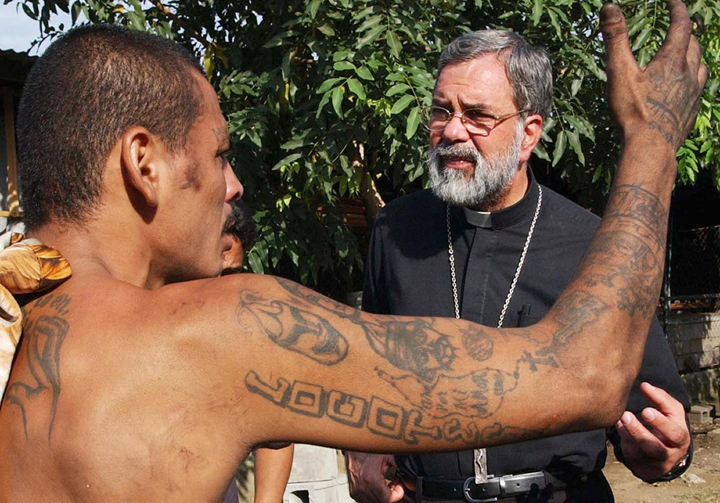TEGUCIGALPA, Honduras – President Porfirio Lobo said Monday that he is backing efforts by a Roman Catholic Church leader to arrange a truce between the country’s two largest and most violent gangs.

Lobo told The Associated Press that he has called Bishop Romulo Emiliani of San Pedro Sula to offer his support in bringing peace to Honduras, which has one of highest homicide rates in the world.
The bishop has been acting as a mediator between the Mara Salavatrucha and 18th Street gangs. He said last week he expects the gangs to sign a truce Tuesday and ask for talks with the government to help them start leaving their gang lifestyle.
“We have to look for anything that’s an alternative to violence, and on the part of the government, we are open to any process that can lower violence,” Lobo said in the interview.
Lobo said he is putting himself at Emiliani’s disposal “to do whatever is necessary,” adding that he has faith in the bishop’s initiative.
Emiliani said last week when announcing the truce that the gangs need government help to stop charging protection fees to finance their war with each other and that authorities should try to turn Honduras’ prisons into rehabilitation centres. The gangs are also expected to issue a public apology.
Honduras is following the example of El Salvador, where leaders of the same gangs agreed last year to a truce that sharply lowered the number of violent deaths. According to reports from Salvadoran public security authorities, homicides have dropped about 52 per cent in the 14 months of the truce.
Adam Blackwell, the Organization of American States’ ambassador for security affairs, said the dialogue with the Honduran gangs started eight months ago, when he and Emiliani visited prisons in San Pedro Sula and Tegucigalpa and met with members of both groups.
Both gangs have their roots in Southern California, where young men seeking refuge from Central America’s civil wars formed violent gangs on the streets of Los Angeles and its suburbs in the 1980s. Gang members later deported from the U.S. re-established their violent organizations in their native countries of El Salvador, Guatemala and Honduras.



Comments